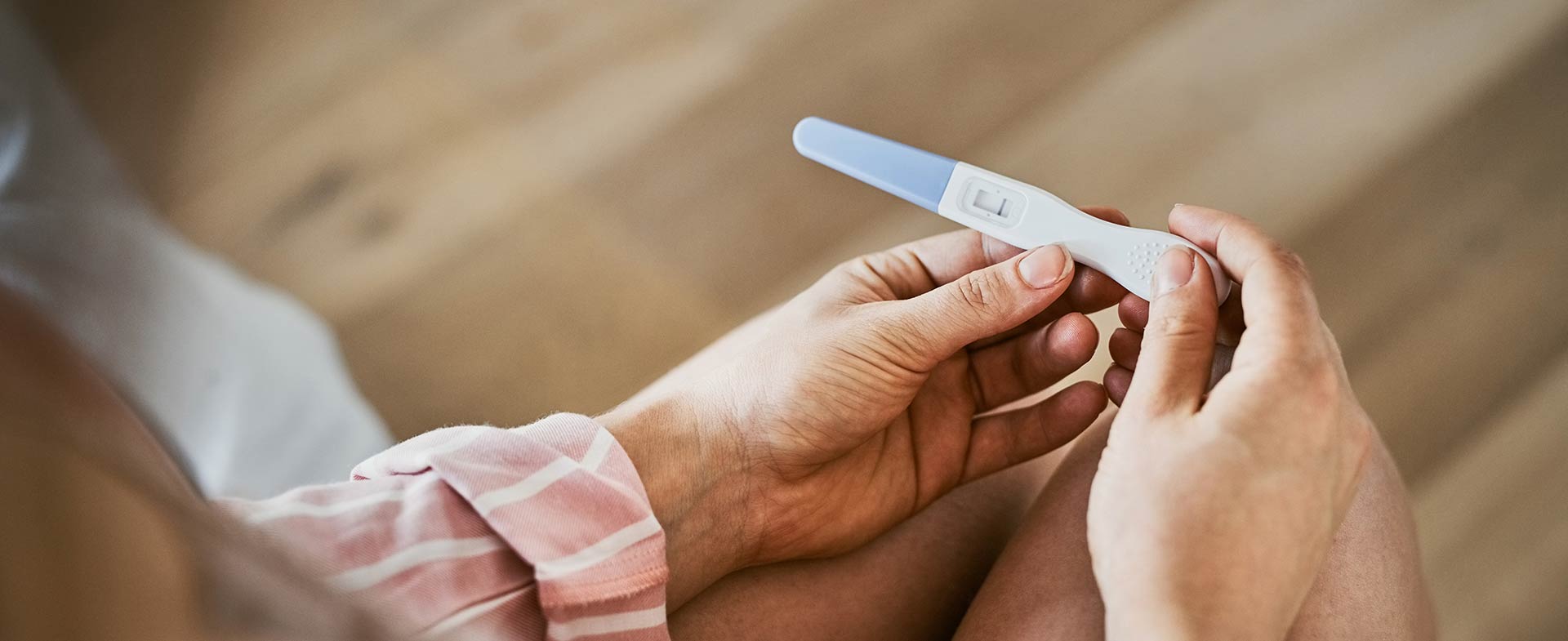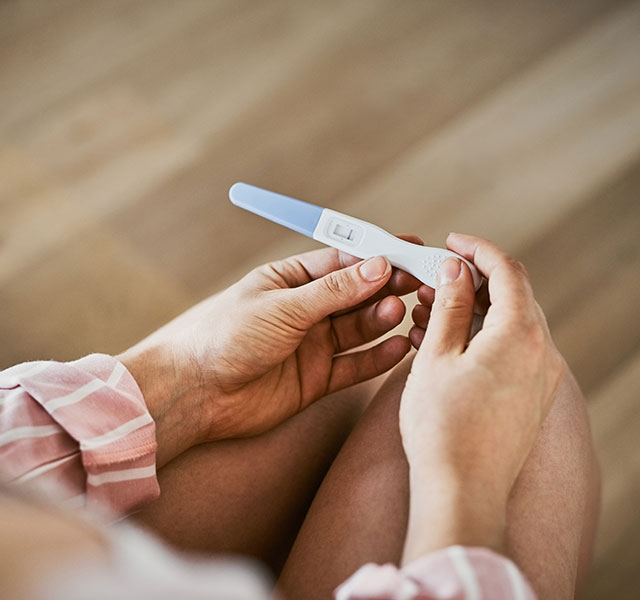If you’re a woman experiencing infertility, you’re not alone. About 11% of women aged 15 to 44 are unable to conceive after one or more years of unprotected sex.
While a woman’s ability to conceive and carry a pregnancy decreases with age, many other factors can impact fertility. “Irregular menstrual cycles, problems with reproductive anatomy or other illnesses can also impact fertility. So women of all ages can benefit from seeing a fertility specialist for an evaluation. The earlier you seek care, the greater the chance for achieving a healthy pregnancy,” says Ahmad Hammoud, M.D., a reproductive endocrinologist and Medical Director for the Center for Reproductive Medicine at Henry Ford Health.
What Causes Infertility In Women?

Meet With A Fertility Expert
Each step of the reproductive process must occur to achieve pregnancy. A woman’s ovary must release an egg (ovulation), which travels through the fallopian tube into the uterus. Once in the uterus, the egg must be fertilized by a male’s sperm to achieve conception.
There are many myths about why infertility occurs, but according to Dr. Hammoud, many factors can play a role, including conditions that affect ovulation or reproductive channels. Lifestyle habits and other medical conditions can also increase a woman’s risk for infertility.
Conditions that can disrupt ovulation
Several factors can interfere with the ovary’s ability to release an egg each month, including:
- Age: As women age, the quality and quantity of healthy eggs diminish. Girls are born with approximately 5 million eggs. When menstruation begins at age 12 or 13, about a half-million eggs remain. By age 32, the quality of eggs begins to decline and by age 37, most women have less than 20% of their eggs left.
- Hormonal imbalances: Hormonal disorders can interfere with ovulation. Polycystic ovary syndrome (PCOS), a common genetic hormone imbalance that prevents the ovary from producing eggs, can affect women beginning in their teens. Other disorders affecting the thyroid or pituitary gland in the brain can also interfere with ovulation, even in young women.
- Early menopause: The average age of menopause is 51. But some women begin to have irregular periods in their 20s and 30s. These women may be born with fewer eggs or lose them faster.
- Weight imbalance: Recent weight gain or loss can also affect ovulation.
Conditions that can affect reproductive channels
Many conditions can disrupt the egg's pathway as it travels from the ovary to the uterus for fertilization, including:
- Scarring from past infections or surgical procedures can cause inflammation that affects reproductive organs. For example, an infection could leave scar tissue that causes blockages in the fallopian tubes (tubes that connect the ovaries to the uterus).
- Endometriosis is a condition where the tissue lining the uterus (endometrium) attaches to other organs in the body. With endometriosis, scar tissue may surround the ovaries or fallopian tubes and affect fertility. This condition is most common in women who began menstruating in early adolescence, but it can affect women of all ages.
- Uterine fibroids are noncancerous growths that vary in size. Some fibroids are tiny and undetectable. Others are large, which can cause the uterus to become misshapen. This can affect the implantation of the pregnancy. It can also cause the fallopian tubes to pull away from the ovaries, disrupting the ovulation pathway. Fibroids are most common in women aged 30 to 40, but they can occur at any age.
Other risk factors
Other factors that may affect a woman’s ability to conceive, no matter her age, include:
- Lifestyle habits: Smoking or excessive use of alcohol or drugs
- Weight: Being significantly under or over a healthy body weight
- Activity level: Poor fitness or extreme athletic activity
- Other medical conditions: Diabetes, lupus, rheumatoid arthritis or diseases affecting the heart, liver or kidneys
How Is Infertility In Women Treated?
Dr. Hammoud stresses that if you’re having trouble conceiving, you’re not too young to seek care for infertility. Treatment options depend on the underlying cause of infertility and may include:
- Lifestyle changes including stopping smoking, maintaining a healthy weight and exercising
- Medications to stimulate hormones that boost egg production, increasing the release of quality eggs during ovulation
- Surgery to remove blockages or treat other conditions affecting your ovaries, fallopian tubes or uterus
- Artificial reproductive technology offers treatment for women and couples with more complex underlying causes for infertility. These treatments include:
- Intrauterine insemination (IUI), where an infertility specialist inserts healthy sperm into the uterus for fertilization
- In vitro fertilization, where an infertility specialist removes mature eggs and combines them with healthy sperm in a laboratory. Once fertilization occurs, the embryo is implanted into the uterus.
“A fertility specialist can help you identify the best treatment options for you,” says Dr. Hammoud. “The earlier we can evaluate a patient and offer treatment, the greater the chance for a successful pregnancy.”
Reviewed by Dr. Ahmad O. Hammoud, a fertility specialist who sees patients at the Henry Ford Reproductive Medicine Center at Henry Ford Medical Center - Troy.



